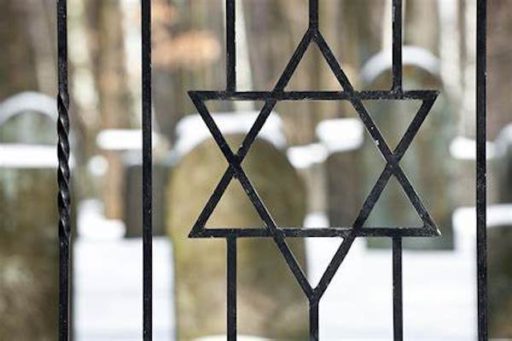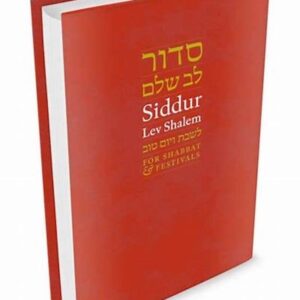When Carol died, I thought it’s not my time.
Carol was my shadchanit, Jewish matchmaker. On a Saturday night in July 1989, I went with Carol and Bob, her husband, along with two other new friends, also a husband and wife, to the Beaucatcher Cinema to see “When Harry Met Sally.” I had just moved to Asheville. In the lobby after the film ended, we bumped into another friend of theirs who, with her parents, had just seen the same film. They introduced me to Laurie, after which Carol and Laurie went to the Ladies Room. There, Laurie told Carol about a Jewish singles event that would take place the next day. As we headed to the car, Carol told me that Laurie hoped I would attend.
I was thirty-five, single. About to begin my work at UNC Asheville. A few months before moving to Asheville, I contacted the rabbi of Congregation Beth Israel, Asheville’s conservative synagogue. What are my chances of meeting an available Jewish woman, I asked. This rabbi had attended the University of Florida, where I had recently completed my graduate work. He graduated before I started at UF. But the woman he dated before he graduated was still in Gainesville. I became her next boyfriend. Our relationship lasted three years. There’s only one woman, recently divorced, the rabbi said. She smokes, and she’ll probably be taken by the time you get here.
I need a haircut!, I said to Carol. No you don’t, she said with a wry smile (I’m bald) as we got in the car and headed home.
*
After I’d been in Asheville for a couple of years, I joined our chevra kadisha, the holy burial society. Three times I participated in tahara, the ritual purification of bodies for burial. Then I dropped off the committee. I was too busy. Classes to teach. Events to plan. Meetings to attend. I could not stop for death.
*
How we move through time; how we are moved through time. That’s what I taught–or tried to teach my poetry students.
“With how sad steps, O Moon, thou climb’st the skies,” writes Sir Philip Sidney.
“Flying through something that he dreads, than one,” writes Wordsworth.
How fittingly plodding, those “sad steps” of Sidney’s unrequited lover. How fleet, the line that enacts the passage of the young man he once was, bounding over the mountains to which he has returned, Wordsworth, now regarding the place with a philosophic mind. The measure—the measurements are the same: two lines of iambic pentameter. But the time it takes to move through those lines differs sharply. And within the lines themselves, the pace, the effort or ease with which a reader moves through time changes. “Thou climbs’t the skies”: the movement has steadied, become regular, even balanced. “Flying through something that he dreads”: we fly through the first four-fifths of the line. Then, we pause, coming almost to a complete stop before the sense of the sentence turns: “than one/Who sought the thing he loved.” The way each line moves and moves us through time expresses the precise and unfolding emotional and psychological conditions of its speaker.
Call it craft, call it art, how with skillful use of language we create time.
*
Carol wasn’t much of a synagogue goer. Bob is. He frequently leads services. He freely shares with us his Torah, what he’s learned about Judaism and how it applies to his life and our lives. Their home is kosher. The lives of their kids and grandchildren are grounded in Judaism and Jewishness. There was no question, when Carol died suddenly at seventy-five, that the Jewish rituals of death and mourning would be followed closely.
Shortly after Carol’s death in the hospital, her body was transferred to a local funeral home. Following Jewish tradition, the body would be guarded, watched over by shomrim, Jewish men and women, from the time of death until burial. Laurie, my wife of 32 years, the woman who I saw but did not speak to at the Jewish singles event, has been volunteering for shomrim regularly for many years. I haven’t. I need to protect my time.
Laurie and I took the second morning shift. As is the tradition, we sat quietly reading psalms, reflecting on our love of Carol over decades of friendship. Half-way through our two-hour shift, we had the opportunity to hug and offer our love and condolences to Bob, his son and daughter, and his sister-in-law and her husband when they arrived at the funeral home to plan the following day’s funeral. Jewish tradition: bury the dead as soon as possible—ideally within a day or two. Carol died on Wednesday evening. Her funeral followed by her burial were on Friday afternoon.
*
Time, Thy most precious gift. These are the words that were said while soft organ music played at the end of the silent prayer, for me the most memorable part of the service at Temple Emanuel, the reform congregation I attended as a boy. I looked for those words just now in the Union Prayer Book for Jewish Worship, a 1940 publication of the Reform Movement’s Central Conference of American Rabbis. I couldn’t find them.
*
My time to read.
Most mornings I wake up before Laurie. I prepare her coffee, fix my tea, take my place on the sofa, and read. Lately, I’ve been reading Times Alone: Selected Poems of Antonio Machado, translated by Robert Bly. A friend gave it to me as a gift: “To Rick—For those ‘Times Alone.’ May this give you pleasure. Affectionately, Don. 12/12/83.” Two weeks later I would leave Gainesville, Florida, where we were both studying with Donald Justice, to have major surgery in Philadelphia—a bilateral femoral-aorta bypass. It’s taken me almost forty years to read the book. Don’t interrupt me now.
*
The morning after Carol died, I didn’t read Machado. I showered, ate a bowl of granola, and, with Laurie, dashed to the funeral home.
U’vtuvo mchadeish bchal yom tamid maasei vreishit, we say in Jewish morning prayers. In Your goodness, every day you create creation, space and time. It’s not my time. Thank God. Carol’s death taught me that.
*
This evening, Bob and a few of the usual suspects, as Carol called us, will gather for Shabbat dinner. Our small group—six, seven, eight or a few more of us, depending on who’s in town—has celebrated many Shabbat dinners together over the last thirty years. Holy time. Indeed. “And God blessed the seventh day and declared it holy (va’yikadeish oto)” Gen 2:3. It’s the first use of the word for holiness, kodesh, in Torah.
*
“Now our life amounts to time,” Machado writes.
*
This Shabbat, will I resist the urge to check my Google calendar? It is, after all, my time. I need to manage it.
I know only this: tonight as I look at Laurie lighting the Shabbat candles, I will think of Carol and the time she led me more deeply into life.
Richard Chess directed the Center for Jewish Studies at UNC Asheville for 30 years. He helps lead UNC Asheville’s contemplative inquiry initiative. He is a board member for the Center for Contemplative Mind in Society. He’s published four books of poetry, the most recent of which is Love Nailed to the Doorpost. You can find him at http://www.richardchess.com





